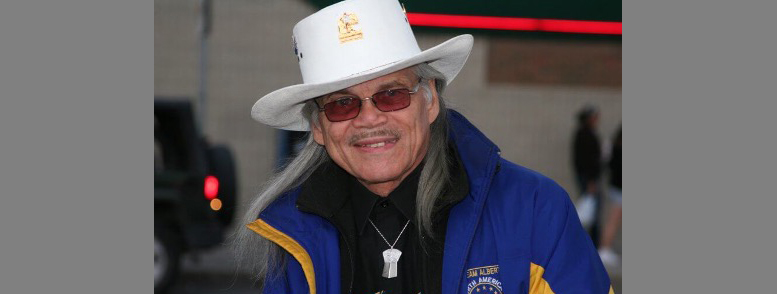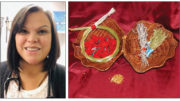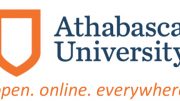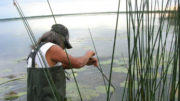(ANNews) – Terry Lusty, a prominent Métis elder and advocate, always regretted that he was unable to complete graduate-level university courses and earn a PhD after a serious collision in the 1980s sidelined his educational goals.
Yet despite the setback, he has spent most of his life as an educator and has accomplished as much if not more than many people with a doctoral degree. In that context, he said receiving an Honorary Doctor of Laws degree from Athabasca University is an incredible honour—and one that means more to him than a traditional degree would.
“It speaks louder to me, and it really is humbling because I know, too, that not many of our people are awarded these kinds of things,” he said. “I’m very flattered, humbled, and honoured to receive this Doctor of Laws.”
Lusty is well-known as an elder, activist, historian, author, journalist, poet, artist, and survivor of Canada’s residential school system. He has accomplished an impressive amount in his lifetime, including authoring several books and countless news articles about Métis culture and history, founding and contributing to newspapers covering Indigenous issues, contributing to Alberta Learning’s curriculum with respect to Indigenous issues, founding and contributing to Indigenous movements and organizations, ongoing involvement in mentoring Indigenous youth through several Friendship Centres in Alberta, and sharing his residential-school story as part of Canada’s Truth and Reconciliation Commission hearings.
He said his efforts to learn about Métis and Indigenous heritage and culture were inspired in no small part by the fact he was denied access to these things in his own formal education as a child.
Lusty was born in Manitoba, and entered the residential school system when he was just three years old because his mother was unable to care for him. In that time he was not taught about his language and culture – instead the lessons focused almost entirely on language arts, mathematics, and religion, putting students at a big disadvantage.
After Grade 6, he had to leave residential school to attend Grade 7 in the public school system. He and other Indigenous students endured not just the foster-care system, which was rife with abuse, but school was not a safe place for them either.
“It was brutal. We were taunted, we were teased, we were ridiculed, we were isolated, we were discriminated against, you name it,” he said. “And it’s not a healthy way to grow up.”
But in Lusty’s last year, which was Grade 8, he had to write an essay. His teacher observed that his writing level was a few grade levels ahead, which provided some much-needed encouragement.
After he left school, he saw that many of his peers ended up on the streets, doing drugs, drinking, with no training and no proper education—and a lot of them became “nobodies.”
“I didn’t want to be that way,” he said.
The years immediately after leaving school were a dark time for Lusty, as he jumped from job to job and didn’t really see much of a future for himself.
When he turned 18, though, he began travelling across Canada and the United States, which he said opened his eyes to a lot of things like the realities of life and the kinds of problems people face. In that time he taught himself as much as he could about Indigenous heritage, culture, and the issues facing contemporary Indigenous North Americans.
He ended up in Calgary in his early 20s, got involved with the Native Friendship Centre there, and helped found the Calgary Métis Society, which became a local branch of the Métis Association of Alberta.
“Because I had dived into researching my history and culture so much, I did a lot of guest talks in university classes, and also as a mentor for city police recruits to mentor them on native history, culture, and protocols,” Lusty said.
His research, along with his growing collection of Métis artifacts and crafts, led him to develop a small museum-style exhibit for the City of Calgary’s Centennial celebrations in 1975. It was received so well that he decided to take the exhibit on the road – in a converted school bus he called the Adrian M. Hope Métis Museumobile – to bring to bring education about Métis history and culture to Indigenous communities all across Alberta.
“It was terrific. The people just loved it. I couldn’t believe the response I got from them,” he said. “And from non-Natives as well, who didn’t know a lot about Métis culture and history. It was important for them.”
Two professors from the University of Calgary eventually approached Lusty to ask if he had ever considered university. At the time he had two young children, but with their encouragement and the support of student loans and grants, he was able to earn a Bachelor of Education.
By the time he had entered university, he had already published three short books. In 1979, while finishing university, he was also finishing a book he co-authored, The Métis of Canada: An Annotated Bibliography. Six more publications then followed.
During his first teaching job in Wabasca-Desmarais, he noted an “extreme absence” of Indigenous culture and history in the curriculum, and after one year he developed a program, to cover those topics for the students in grades 7, 8, and 9.
“Years later, (a group of former students) thanked me for bringing them their culture. And that felt so good, so heartwarming, to get that feedback from them – that they still remembered it and still appreciated it.”
He returned to university to pursue a Master of Education, but his studies were cut short when he was involved in a serious collision in northern Alberta, and he was never able to complete it. He spent two more years teaching in Fort Chipewyan before focusing on his advocacy work, journalism, photography, and art – work that he continues to this day.
“This has been a beautiful ride for me, all these decades of work. Kids, young people out there, and people pursuing their education or even those who aren’t, I’d really encourage them to get it,” he said. “It’s such a blessing to have an educational background, and you gain so much from it.”
To learn more about Athabasca University, please visit athabascau.ca







Be the first to comment on "Athabasca University honours Metis Elder, Educator and Photo Journalist Terry Lusty"